10 Best Breakfast Foods for Losing Weight & Gaining Muscle
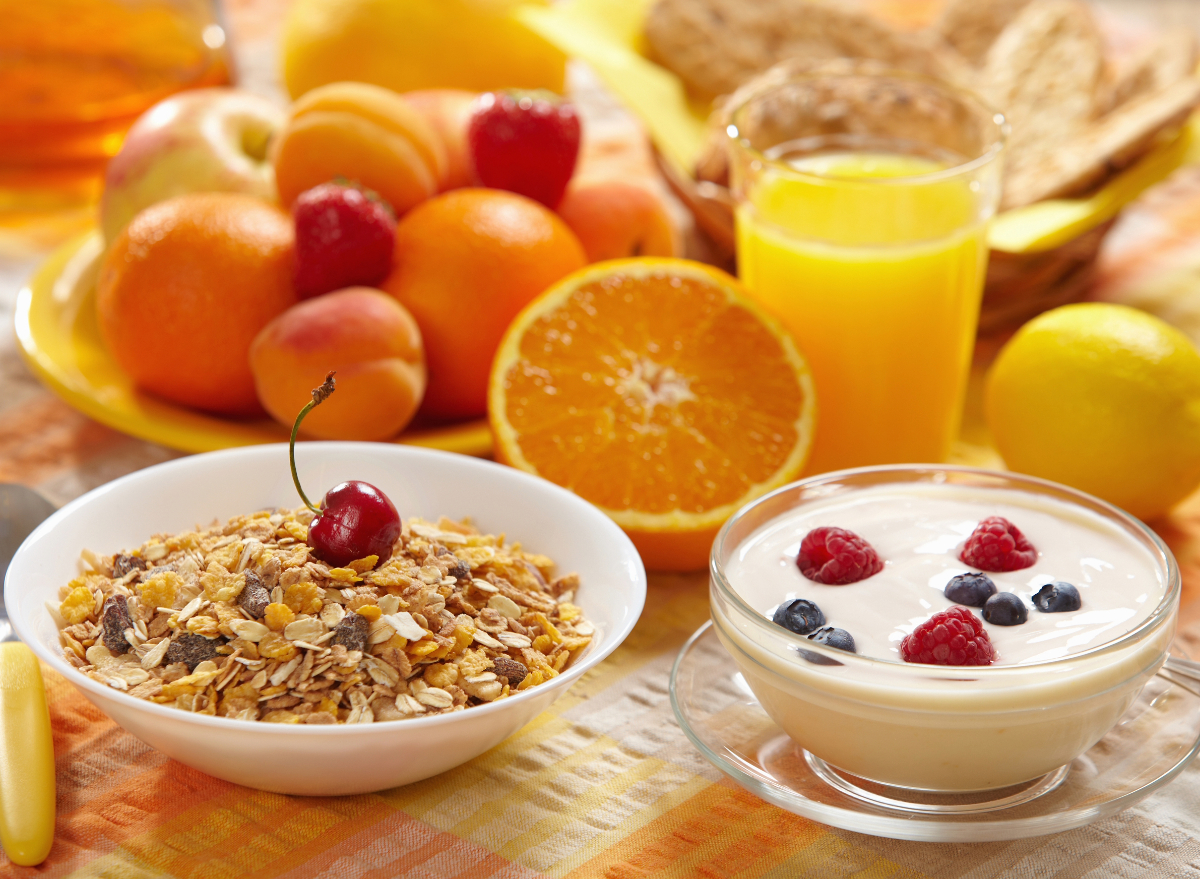
Breakfast is each day’s most important meal, especially when you’re trying to lose weight and gain muscle. Your morning meal can jumpstart your metabolism, help preserve lean muscle mass, stabilize blood sugar levels, regulate appetite, and provide energy for workouts. However, with so many breakfast foods touted as beneficial, it can be tricky knowing what weight-loss-friendly, muscle-building foods top the “breakfast of champions” list. Fortunately, we have you covered. We chatted with Destini Moody, RDN, CSSD, LD, a registered dietitian and sports dietitian with Garage Gym Reviews, who shares her top 10 best breakfast foods for weight loss and muscle gain.
From protein-packed options that support muscle growth to fiber-rich foods that help weight management, we dissect the nutritional benefits of each food and explain why they deserve a spot in your weekly breakfast rotation. Read on to discover the best breakfast foods for weight loss and muscle gain. And when you’re finished, check out these 9 Lazy Ways to Lose Weight All Month Long.
Eggs
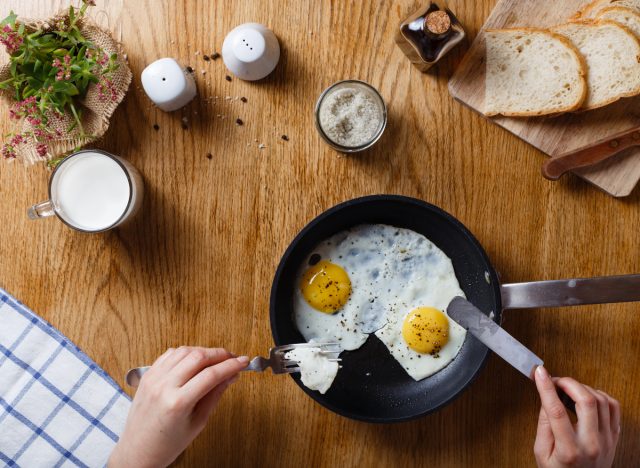
Packed with essential nutrients like choline and B vitamins, eggs provide a sustained energy boost to kickstart your day. Whether scrambled, poached, or in a hearty omelet, eggs are a versatile and delicious foundation for a weight-loss-focused breakfast.
“Eggs are a food that, for the protein quality, has the lowest economic cost compared to other common protein sources,” says Moody. “Studies show that, in terms of the amino acid and digestibility score, eggs are among the highest quality protein sources. This makes it a prime choice for muscle gain, as building muscle requires a consistent intake of essential amino acids. Eggs are also low in calories, making them suitable for weight loss.”
Canadian Bacon
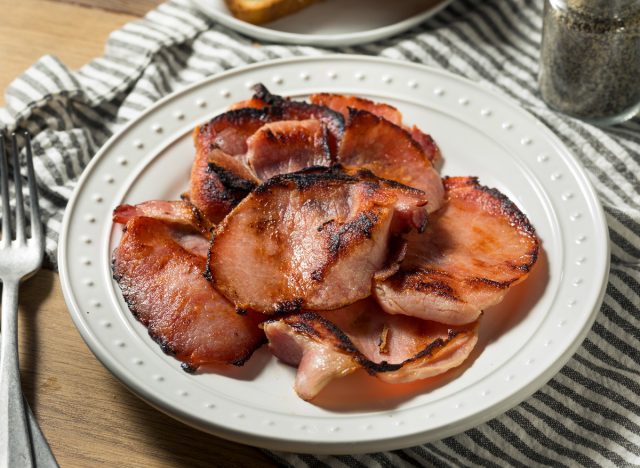
With its high protein content and lower fat than traditional bacon, Canadian bacon is a wise breakfast choice for those looking to build muscle and melt away pounds. Pair it with eggs or whole-grain toast for a satisfying and well-rounded morning meal.
Moody tells us, “This ham-like breakfast food probably doesn’t taste nearly as indulgent as its pork counterpart, but it’s low in calories at only 45 calories a slice. Each slice of Canadian bacon also contains 6 grams of protein, meaning you can get a hefty amount of protein to support muscle gains without consuming enough calories to sabotage your weight loss.”
Chicken Sausage
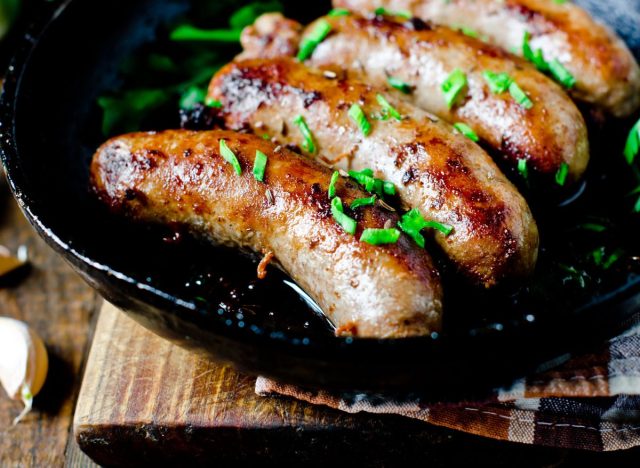
Choosing a lean poultry-based sausage over traditional pork options can reduce overall fat intake while maintaining a delicious taste. Whether added to a breakfast bowl or enjoyed with whole-grain English muffins, chicken sausage is a delightful addition to a diet focused on weight loss and muscle gain.
“A great alternative to pork sausage, chicken sausage is lower in saturated fat. Not only is saturated fat harmful to the heart, it causes inflammation that can inhibit muscle building. It’s also much lower in calories than pork sausage, so it’s a great swap for those trying to lose weight,” explains Moody.
Oats
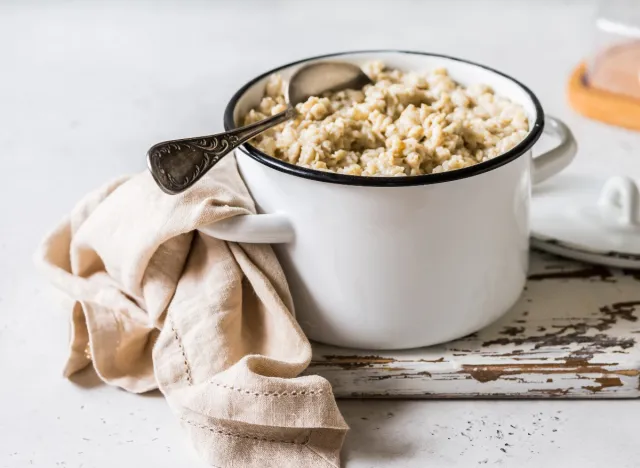
The complex carbohydrates in oats provide a steady release of energy, keeping you fueled throughout the morning. Enjoy a bowl of oatmeal with berries, make some overnight oats, or add them to a smoothie for a versatile and filling breakfast option that fuels your muscle-building and weight-loss potential.
“Oats are packed with soluble fiber, which slows digestion and can keep you fuller for longer,” Moody states. “This can help with weight loss by helping you to manage your hunger. Be careful of your portions, as the calories can add up quickly, but the high carb content can help fuel your resistance training for those morning workouts.”
Cottage Cheese
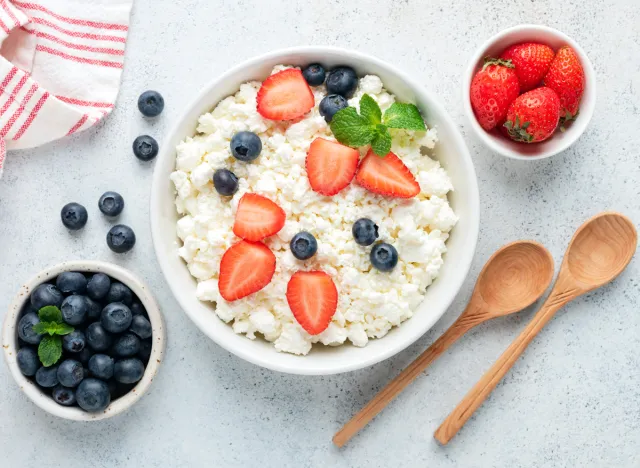
Rich in casein protein, cottage cheese provides a slow-release protein source, making it an ideal choice for muscle repair and maintenance. Enjoy it with fresh fruits, nuts, or whole-grain English muffins for a delicious and nutrient-dense breakfast.
“Cottage cheese is an underappreciated source of protein. It’s relatively low cost and one cup can contain a whopping 25 grams of protein, which is as much as your average scoop of protein powder. Low-fat versions have fewer calories, making it better for weight loss and more protein per serving to fuel your muscle,” says Moody.
Greek Yogurt
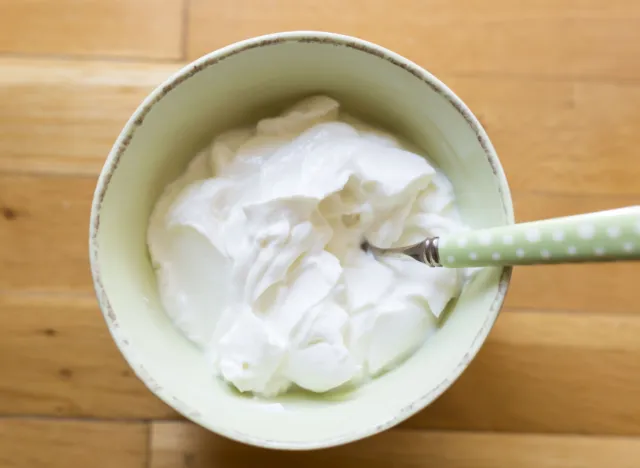
Greek yogurt is a creamy and protein-rich breakfast that contains probiotics for gut health and protein for muscle growth and satiety. Mix it with fruits, granola, or nuts for a satisfying and nutrient-packed morning meal.
“Greek yogurt has surged in popularity in the last decade largely due to its protein content compared to normal yogurt and how versatile it can be as a snack, breakfast item or included in recipes to make sauces and bases,” says Moody. “Like cottage cheese, non-fat versions tend to be lower in calories, about 110 calories per 5.3 ounce container, and higher in protein. Greek yogurt also contains casein protein, which digests slowly so it can help prevent you from overeating.”
High-Fiber Cereal
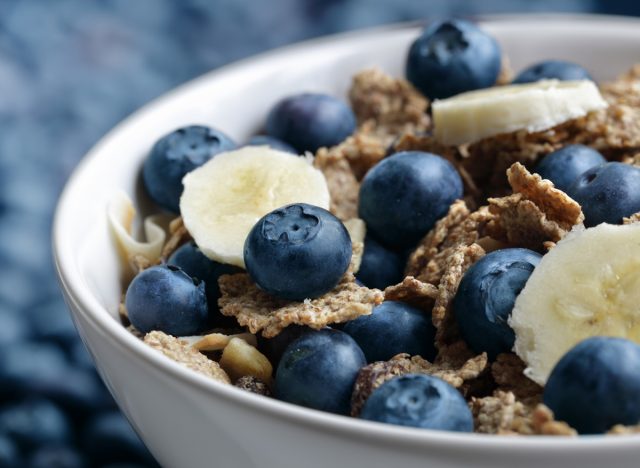
Look for cereals with minimal added sugars and high fiber content to support digestive health and keep you feeling full. Pair it with milk, yogurt, or your favorite plant-based alternative for a simple and delicious breakfast option.
“The problem with most breakfast cereals is how high-sugar and low-fiber they are,” says Moody. “Cereals like this cause blood sugar spikes that have a rebound effect of crashing right back down even lower than before, and this low blood sugar makes you feel hungry soon after you’ve had a bowl of cereal. Thus, cereals full of bran and oats are the best for weight loss.”
Protein Shakes
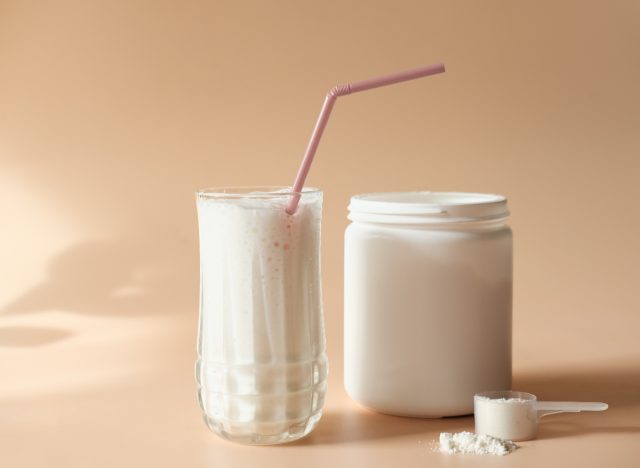
Protein shakes are a convenient way to kickstart your day with a substantial dose of protein. Shakes can support muscle gain and weight loss goals, whether made with whey or plant-based protein sources.
Moody says, “For those who just don’t have time to cook breakfast every morning, a protein shake made with high-quality protein like whey isolate can be a good option. It can help support muscle growth and quickly and conveniently keep hunger at bay as you start your day.”
Smoothies
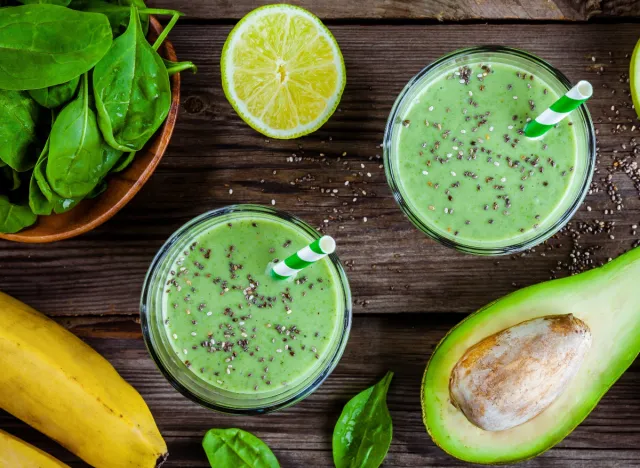
Smoothies offer endless possibilities for a nutrient-packed breakfast that boosts weight loss and muscle gain. Consider adding ingredients like spinach, berries, and Greek yogurt to enhance your morning smoothie’s flavor and nutritional profile.
“You can make smoothies as low-calorie as you like by using low-calorie fruits and vegetables like berries or spinach rather than bananas and avocado,” recommends Moody. “Just make sure the smoothie is balanced if you want to use it as a meal replacement. This means it should have a blend of produce, protein from milk, yogurt or protein powder, and carbohydrates from fruit, dairy, or oats.”
English Muffins
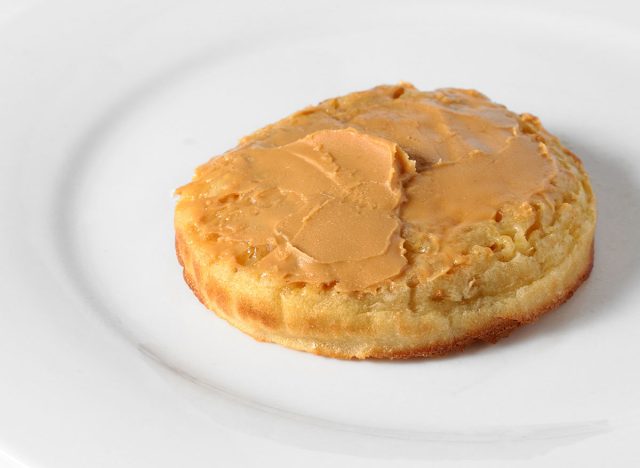
Loaded with complex carbohydrates and fiber, English muffins deliver sustainable energy and help you feel fuller longer. Top them with eggs, avocado, or nut butter for a balanced and delicious breakfast that aligns with your weight loss and muscle gain goals.
“English muffins can be used to make breakfast sandwiches or toasted and eaten with fruit and nut butter. One muffin averages about 130 calories (compared to the 250 calories in a bagel), and getting the whole grain variety provides more fiber to promote a feeling of fullness. Also, all those healthy carbs first thing in the morning go a long way in sparing your muscle mass from breakdown by giving the body the fuel it needs,” says Moody.









